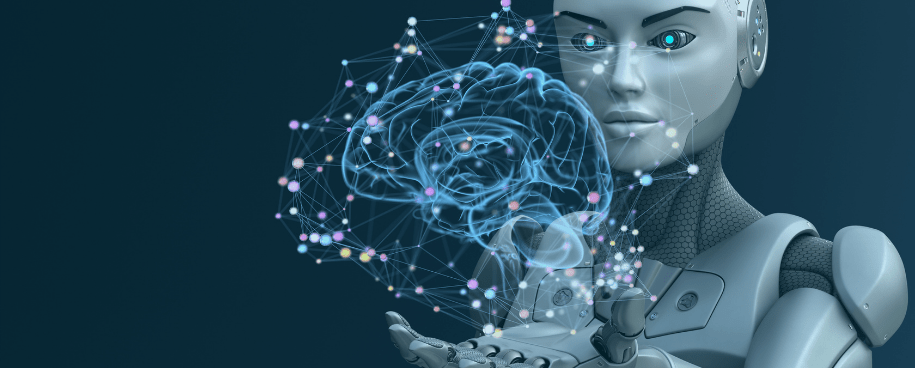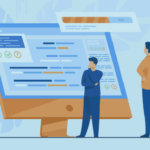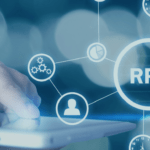
“The Artificial Intelligence in the global healthcare market was estimated to grow at an annual rate of 44.9% from $4.9 bn in 2020 to reach $45.2 bn by 2026,” according to a recent survey. But the unprecedented events of 2020 have vastly accelerated this trend. Telemedicine picked up pace during the pandemic-led restrictions and lockdowns and became one of the most significant trends of the healthcare industry. Telemedicine can further be made more efficient to deliver superior care remotely with the use of AI. AI in telemedicine can potentially overcome various challenges like high-volume demand, securely accessing the patients’ medical history, understanding the patient’s illnesses, tracking and updating the availability of healthcare facilities, and so on.
Here’s how AI can impact telemedicine and redefine the future of the healthcare industry:
EHR analysis
The healthcare industry deals with huge amounts of medical data and its subsequent analysis, right from patient records to claims data. Leveraging AI for data analytics and management can prove useful in providing insights in various areas like trend prediction, better diagnosis, avoiding the spread of diseases, improving patient care, efficient business and claims management, and more. AI can enable healthcare professionals to acquire and maintain patient data securely and deliver a well-informed, holistic treatment plan.
Suggested read: How Vatsa Solutions helped simplify preoperative screening without adversely affecting the quality and adherence to healthcare standards.
Remote Consultations
Remote consultations have been one of the most critical tools in combating the pandemic. Thanks to technologies like AI, doctors have begun diagnosing, treating, and monitoring non-critical patients’ illnesses without meeting them in-person. Many healthcare facilities have also started rolling out AI-based virtual assistants and Chatbots to interact with patients in terms of scheduling appointments, reminders for routine checkups, solving basic health queries, and so on. This enablement is significantly helping healthcare professionals to focus on more critical tasks at hand.
Remote Patient Monitoring
The combination of smartphones and AI have led to a variety of creative apps that aid healthcare professionals to conduct their practice remotely. Healthcare apps like these help patients to keep in touch with their doctors and healthcare facilities and also monitor their ongoing treatments. These apps have given a new meaning to the age-old saying “prevention is better than cure” as people have started tracking their nutrition, exercise, sleep patterns, medicine management, and more. AI-automated services are also proving to be beneficial for people participating in medical trials or patients with chronic conditions who need timely medications.
Automation
One of the most promising aspects of AI is its ability to automate repetitive tasks. That applies in the healthcare industry as well. Various business administration and day-to-day operations can be automated and streamlined to free up the human workforce that enables them to provide superior patient care, a better quality of service, lower costs, enhance efficiency, and dependable handling of huge amounts of data. The payers can also benefit from the use of Machine Learning in automated decision-making, revenue cycle applications and management, document processing, and more.
Healthcare Cybersecurity
The increased use of digital technologies has its own challenges. Cybersecurity is one of the top concerns for healthcare facilities as the protection of patient’s data is of utmost importance. AI-based security solutions can help facilities increase their privacy, secure patient data, detect vulnerabilities and data breaches faster with high precision and great efficiency.
The accelerated adoption of AI in healthcare has initiated a revolution in the industry and is greatly impacting the care delivery models. There is a good chance that the future of telemedicine might focus on distributed care such as provisional care facilities between home and hospitals in the form of self-assisted kiosks, basic imaging provisions at local pharmacies, and so on. The post-pandemic world can expect to witness a continued adoption of various technologies like AI, RPA, and automation in multiple areas like robotic surgeries, technology-assisted diagnosis and treatment procedures, drug innovation, automated administrative and financial processes, and so on. AI has a great potential to revolutionize the doctor-patient relationship, collaboration amongst doctors, and overall patient experience.
To learn more about how you can digitize your care delivery model, write to us at [email protected].





